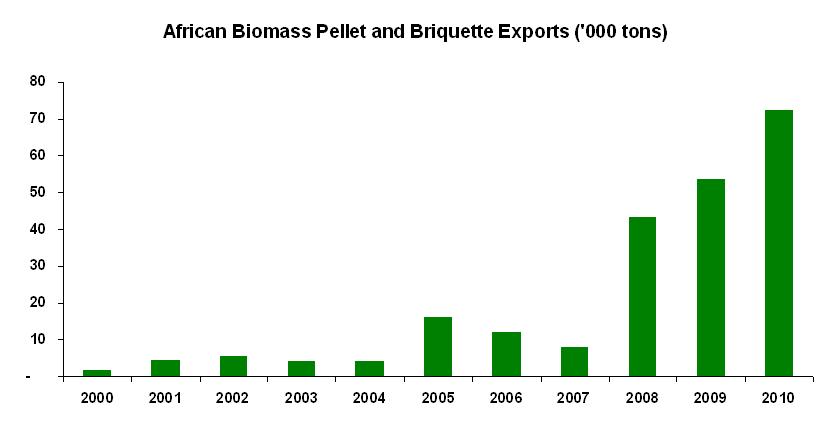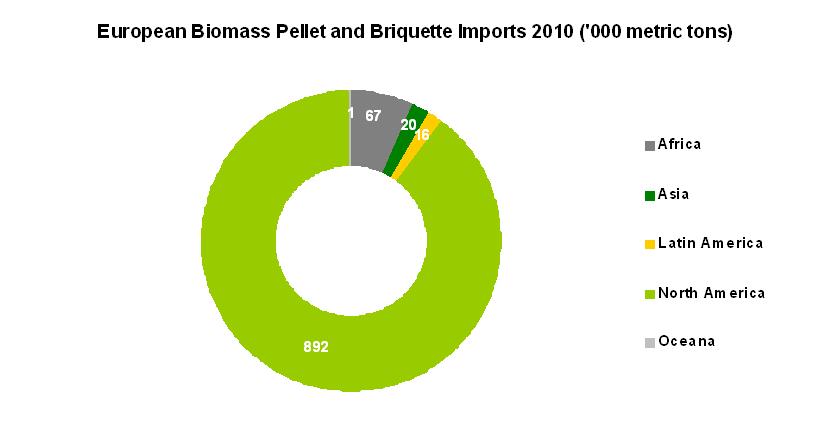Africa is the world’s economic frontier, as years of internal conflict have impeded the development of its vast natural and human resources. Only recently has this potential begun to materialize with biomass fuel emerging as one of Africa’s key industries.
The transition to higher value-added biomass fuel is intuitive given that most of the continent’s citizenry still burn wood for energy and due to the widespread availability of renewable resources in Africa. Briquettes are gradually displacing logs and branches. Agricultural wastes such as coffee husks, peanut shells, cotton stalks and bagasse are being economized to produce fuel. Jatropha oil is being harvested in countries such as Mozambique. Ghana and Ethiopia have introduced bamboo firewood and charcoal into their energy mix. Biodiesel is being processed in Kenya. Adding to these feats is African biomass producers’ increasing ability to cater to international markets, namely Europe.
A small but growing number of African pellet makers are propelling this upward trend in exports. South Africa leads the way with two manufacturers, GF Energy and EC Biomass, each with a capacity of around 80,000 tons per year. Then there is Egypt, home to the United Company for Land Reclamation and Agro Industries. This company exported over 10,000 tons to Europe in 2009 and 2010, to Italy and to other countries along the Mediterranean coast. More recently, in 2009, Scanstyle Biofuel Mim’s pellet plant to came online in Ghana. This Danish-invested mill utilizes waste wood from local industry rather than primary forest.
Also worthy of mention is a uniquely African biomass export: Namibian bushbloks. Bushbloks, an initiative of the Cheetah Conservation Fund, are compressed wood logs made from vegetation which encroaches upon the cheetah’s natural habitat. Over 200 tons were exported to the United Kingdom over the last two years.
Through the efforts of these producers, and aided by Africa’s proximity to the world-leading European market, Africa has become Europe’s second largest source of imported biomass behind North America. Recent European investment in Ghana and Liberia suggests a furtherance of this trade relationship. In 2010, Vattenfall, a Swedish power company, bought a stake in Buchanan Renewables for access to its supply of Liberian woodchips. Made from old rubber trees, the woodchips will be exported to Europe to generate electricity. Later in the year, London-based Africa Renewables signed a similar deal with Ghana Rubber Estates. In time, Africa Renewables plans to process the woodchips to pellets on-site in Ghana before export to the European market to add yet another link in the Africa-Europe biomass supply chain.
Although still a newcomer to the international biomass scene, Africa’s increasing interconnectedness to the European market is driving the industry’s advancement on the continent. Although still on the economic frontier, Africa is rapidly entering mainstream in international biomass.


